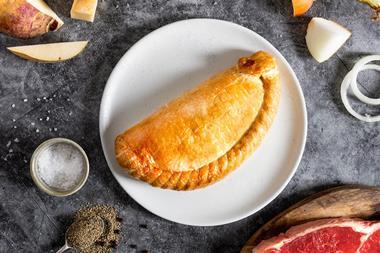
Dr Paul Marsden is a chartered psychologist at Brand Genetics and UAL, specialising in consumer behaviour. Each month, he’ll be tackling a new phenomenon impacting the psyche of the nation’s shoppers and explaining the psychology behind their activities, habits and quirks.
The gifting season is upon us. For some, gifting is fun, for others it’s a fiasco. But don’t panic, psychologists have researched what makes a perfect gift, and it’s all fairly simple. In fact, the science of gifting comes down to following a simple six-point checklist.
To preface the perfect gift checklist, here’s a quick word of warning, don’t listen to the economists. Standard economics suggests that we should all just give cash as gifts, since this is the most efficient way of exchanging value. There are no awkward moments, useless gifts or wasted effort when you gift cash. Economists estimate that up to a third of a gift’s value is lost when it is gifted because of misunderstanding and mismatch, and this culminates every year in what the ‘dismal science’ festively call ‘the deadweight loss of Christmas’. But psychologically, this economic humbug misses the whole point of gift giving, which is about expressing the importance of a relationship. A good gift says, “I know you, I care about you”.
The ‘Six S’ Checklist for the Perfect Gift
1. Sacrifice: Will this gift signal that you have sacrificed time, thought and effort on finding the right present? If yes, go to (2). If no, then opt for something a little less convenient!
2. Suited: Is this gift uniquely suited the recipient in terms of matching their individual personality or preferences? For extra marks, the perfect gift should also reflect something that only you could give right now, because it’s appropriate to your relationship and to the moment, as gift from you. Just ask yourself, ‘is this something that only I could give you, right now?’ If yes, then you’ve nailed the essence of good gift giving, and move on to (3). If, no, then look for something more personal.
3. Surprise: Does this gift have a positive surprise factor? If yes, you’re on the right track and so head on to (4). If no, then think of ways you could at least make the experience of receiving the gift more surprising (think creative wrapping, or surprise locations). Alternatively, look for a gift that is a surprising and memorable experience in itself.
4. Selfless: Does this gift demonstrate that your sole desire and intention is to please and benefit the recipient? If yes, move onto (5). If no, and there’s something in it for you too, then look for something else that’s a little less ‘tactical’ and that better expresses your selfless desire to please.
5. Special: Will this gift be perceived as a desirable luxury, rather than an everyday essential or practical necessity. If yes, you’re on the home straight, and advance to (6). If no, then look for something that’s a little more of a special treat – socks don’t count.
6. Sought: Will this gift delight the recipient because you know it is something that they genuinely desire and will appreciate? When it comes to gifting, the proof of the pudding is in the happy reaction it elicits. So, put yourselves in their shoes, and imagine unwrapping the gift. Would it bring a happy smile to their face? If yes, you’ve found the perfect gift.
Merry Christmas from your Shopper Shrink!
References
Belk, R. W. (1996). The perfect gift. In C. Otnes and R.F. Beltramini (Eds.), Gift Giving. A Research Anthology (pp. 59–84).
Branco-Illodo, I., & Heath, T. (2020). The ‘perfect gift’and the ‘best gift ever’: An integrative framework for truly special gifts. Journal of Business Research, 120, 418-424.
Givi, J., & Galak, J. (2017). Sentimental value and gift giving: Givers’ fears of getting it wrong prevents them from getting it right. Journal of Consumer Psychology, 27(4), 473-479.
McGrath, M. A., Sherry, J. F., & Levy, S. J. (1993). Giving voice to the gift: The use of projective techniques to recover lost meanings. Journal of Consumer Psychology, 2(2), 171–191.




















No comments yet